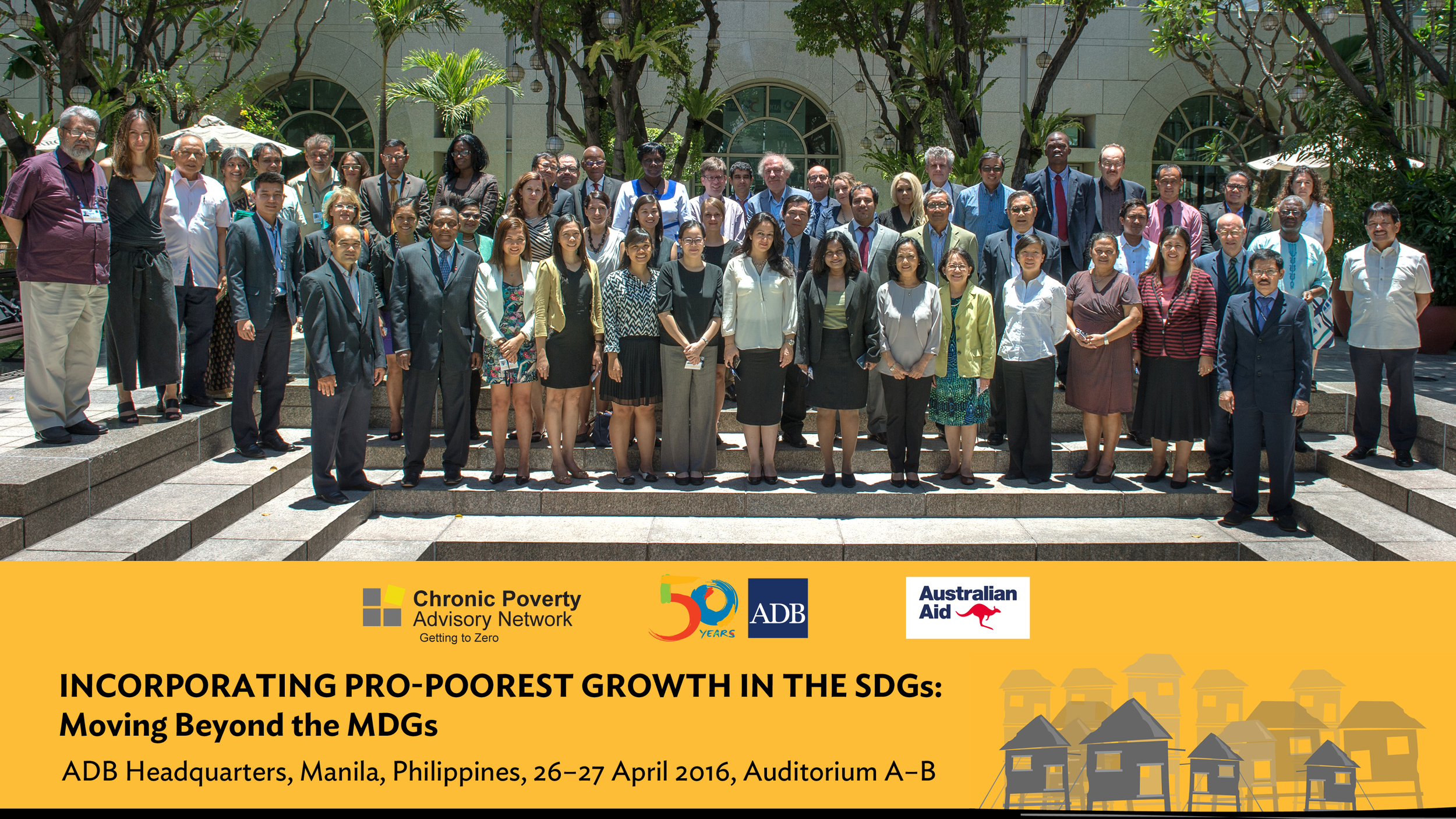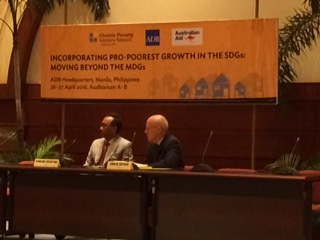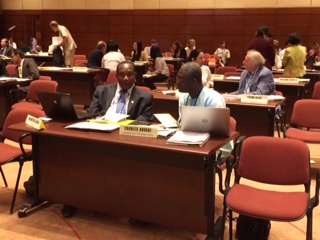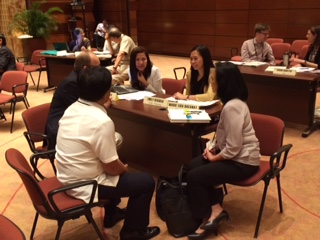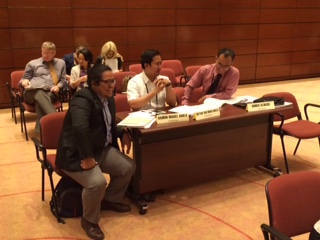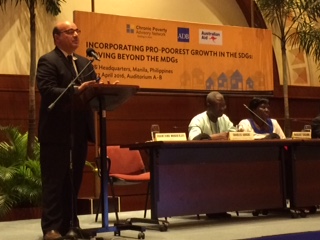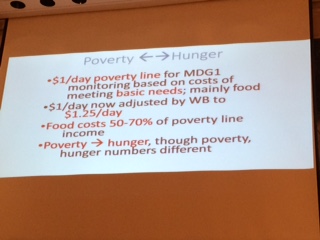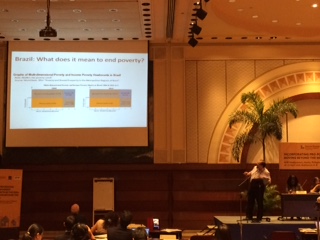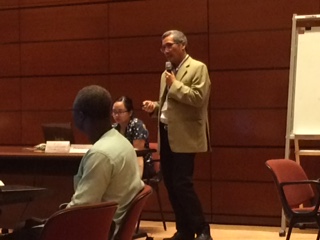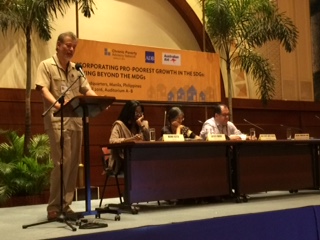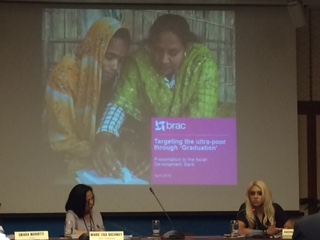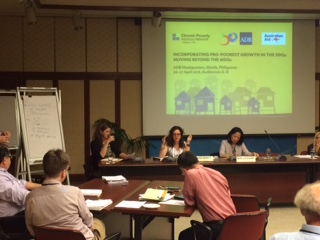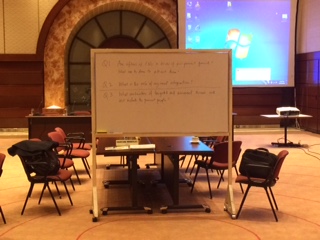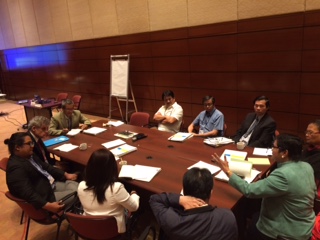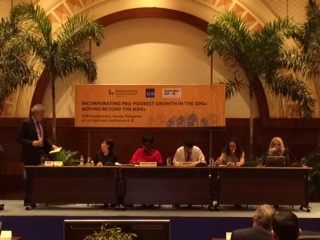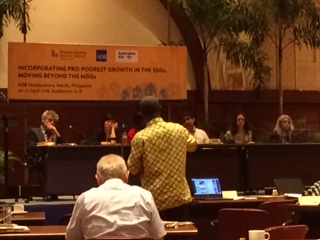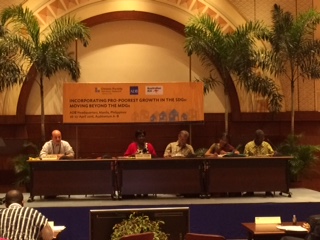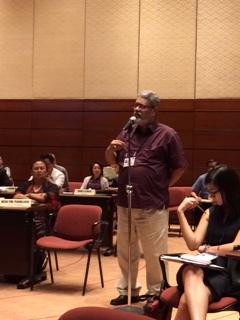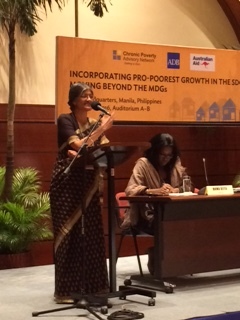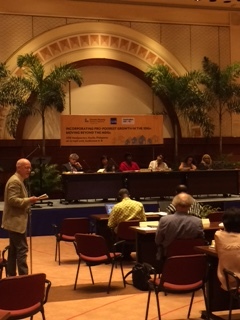Hosted by the Asian Development Bank at its headquarters in Manila and funded by the Australian Department of Foreign Affairs and Trade (DFAT), this two-day conference was a great opportunity to bring together policy makers, renowned economists, government officials and members of the civil society from different parts of the world to exchange experiences and points of view on the importance of including pro-poorest growth policies into the SDGs.
The first day started with some interactive exercises in which speakers and participants discussed their own ideas of pro-poorest growth. This introductory exercise offered the opportunity to combine and debate the various views on pro-poorest growth and its relevance. The morning continued with engaging presentations from renowned key-note speakers, such as Prof. Jayati Ghosh, Mr. Charles A. Abugre, Mr. Luis-Felipe Lopez-Calva and Prof. Jomo Kwame Sundaram.
The afternoon of the first day and the morning of the second day were dedicated to group work. These were structured as panel presentations and working groups. During the former, speakers presented their work and experiences in two parallel panels covering issues such as social protection, graduation, inequality, inclusive growth, financial inclusion, social entrepreneurship, and specific country experiences such as those of Bangladesh, Indonesia and Thailand. The working groups then engaged in intense interaction and deeper discussions among participants and speakers, and each produced a series of conclusions or recommendations. During the afternoon of the second day, rapporteurs selected from the workshops’ audiences summarised the discussions and presented them to the conference plenary.
In the closing session, key-note speakers responded to the points made in the workshops. They also made some relevant recommendations both on approach to categorisation of the poor, the chronic poor and the poorest and the different approaches to tackle their issues effectively.
As a result, the conference produced intense and interesting debates on the differences between the poor and the poorest and on how to include the latter into economic growth policies in the coming years. These inputs will feed into future CPAN projects and publications, such as the next Chronic Poverty Report, planned for 2017. The conference has overall been appreciated by participants who especially enjoyed the working groups, the intense interaction with experts and the many networking opportunities. Some of the policy makers present at the event expressed their satisfaction with the discussions, which they found particularly relevant and inspiring for their work.
Please have a look at the agenda and the list of speakers’ biographies for more information.
The event has been live streamed in its opening session through CPAN’s Twitter account via Periscope. See below some pictures taken during the event.
CPAN would like to thank once more speakers and participants for participating to a very inspiring conference. We hope to have the chance of working with all of you again very soon.
Please download the conference report here.
